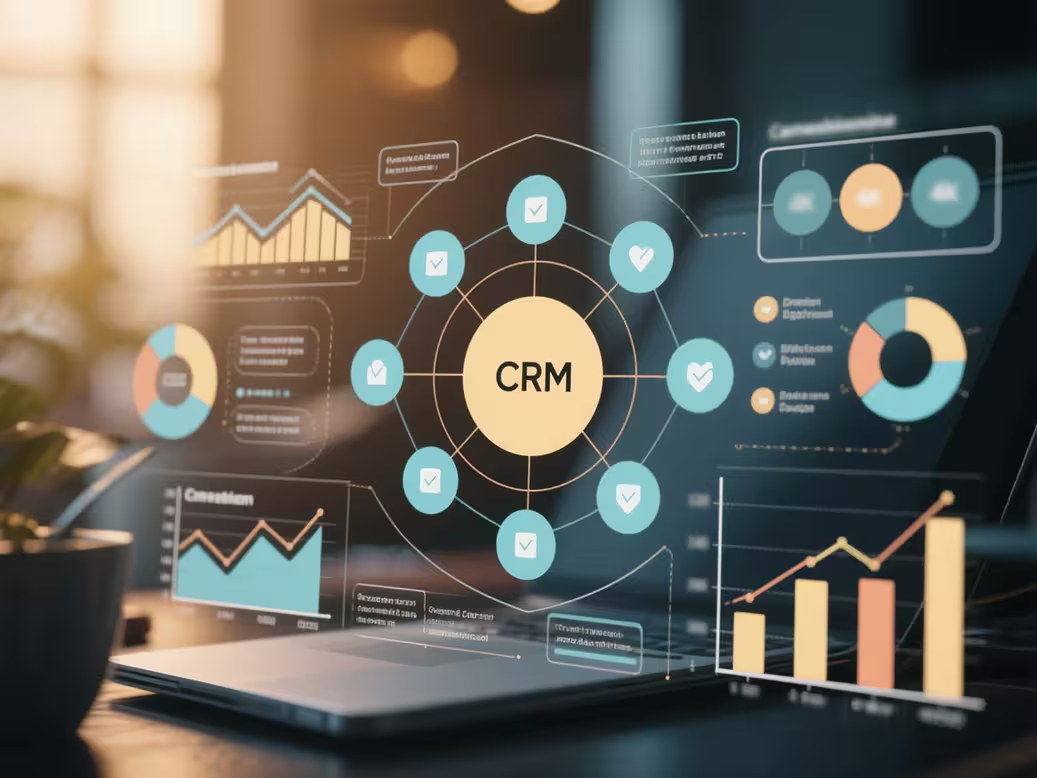In today’s hyper-competitive business landscape, companies that fail to nurture customer relationships are destined to fall behind. Enter Customer Relationship Management (CRM) systems – the game-changing technology that’s revolutionizing how businesses interact with their customers and driving unprecedented growth across industries. Let’s discover together what is a CRM system and its benefits to your business.
What is CRM? 12 Benefits That Boost Sales by 41%
What is a CRM System?
A Customer Relationship Management (CRM) system is a comprehensive software platform designed to centralize, organize, and manage all aspects of customer interactions and relationships. Think of it as your business’s digital command center where every customer touchpoint, sales opportunity, and communication thread converges into one powerful, accessible hub.
At its core, a CRM system serves as a centralized database that stores customer information, tracks interactions, manages sales pipelines, and automates various business processes. Modern CRM platforms go far beyond simple contact management – they’re sophisticated ecosystems that integrate sales, marketing, customer service, and analytics into one seamless experience.
The Core Components of CRM Systems
1. Contact Management
CRM systems excel at organizing customer data, storing everything from basic contact information to detailed interaction histories, preferences, and behavioral patterns. This creates a 360-degree view of each customer relationship.
2. Sales Pipeline Management
Track leads from initial contact through closing deals with visual pipeline management tools that help sales teams prioritize opportunities and forecast revenue accurately.
3. Marketing Automation
Integrated marketing tools enable targeted campaigns, email automation, lead scoring, and nurturing sequences that convert prospects into customers more effectively.
4. Customer Service Integration
Support ticket management, knowledge bases, and communication tracking ensure consistent, high-quality customer service across all touchpoints.
5. Analytics and Reporting
Powerful reporting capabilities provide actionable insights into sales performance, customer behavior, and business trends that drive strategic decision-making.
12 Game-Changing Benefits of CRM Systems
#1. Dramatically Improved Customer Relationships
CRM systems provide complete customer histories at your fingertips, enabling personalized interactions that build stronger, more meaningful relationships. When customers feel understood and valued, loyalty skyrockets.
#2. Explosive Sales Growth
Studies show businesses using CRM systems experience up to 41% increase in sales productivity. By streamlining sales processes, automating follow-ups, and providing better lead insights, CRMs turn your sales team into a revenue-generating machine.
#3. Enhanced Customer Retention
Retaining existing customers costs 5-25 times less than acquiring new ones. CRM systems help identify at-risk customers early, enabling proactive retention strategies that protect your revenue base.
#4. Streamlined Business Processes
Automation eliminates repetitive tasks, reduces human error, and ensures consistent processes across your organization. This efficiency gain translates directly into cost savings and improved productivity.
#5. Superior Data Organization and Accessibility
No more scattered spreadsheets or lost sticky notes. CRM systems centralize all customer data, making it instantly accessible to authorized team members from anywhere, at any time.
#6. Powerful Analytics and Insights
Data-driven decision making becomes effortless with comprehensive reporting and analytics. Identify trends, measure performance, and uncover opportunities that might otherwise remain hidden.
#7. Improved Team Collaboration
CRM systems break down silos between departments, enabling sales, marketing, and customer service teams to work together seamlessly with shared customer insights and communication histories.
#8. Scalable Growth Management
As your business grows, CRM systems scale with you. Handle thousands of customers with the same efficiency you managed dozens, without proportionally increasing overhead costs.
#9. Enhanced Customer Service Quality
Quick access to customer histories, previous interactions, and preferences enables support teams to resolve issues faster and provide more personalized service experiences.
#10. Marketing Campaign Optimization
Detailed customer segmentation and behavior tracking enable highly targeted marketing campaigns with significantly higher conversion rates and ROI.
#11. Mobile Accessibility and Flexibility
Modern CRM systems offer mobile apps and cloud-based access, ensuring your team stays connected and productive whether they’re in the office, on the road, or working remotely.
#12. Competitive Advantage
Businesses using CRM systems consistently outperform competitors who rely on outdated customer management methods, gaining market share and establishing industry leadership.
Types of CRM Systems
1. Operational CRM
Focuses on automating customer-facing processes like sales, marketing, and customer service. Perfect for businesses wanting to streamline day-to-day operations.
2. Analytical CRM
Emphasizes data analysis and customer insights to drive strategic decision-making. Ideal for data-driven organizations seeking deeper customer understanding.
3. Collaborative CRM
Facilitates communication and collaboration across departments and external partners. Essential for businesses with complex stakeholder ecosystems.
Choosing the Right CRM System
Selecting the perfect CRM requires careful consideration of your business size, industry requirements, budget constraints, and growth objectives. Popular options include Salesforce for enterprise needs, HubSpot for inbound marketing focus, and smaller solutions like Pipedrive for simplicity-focused teams.
Key factors to evaluate include ease of use, integration capabilities, customization options, scalability, security features, and total cost of ownership.
Implementation Best Practices
Successful CRM implementation requires executive buy-in, comprehensive staff training, data migration planning, and gradual rollout strategies. Companies that invest in proper implementation see ROI within 6-12 months, while rushed implementations often fail to deliver expected benefits.
The Future of CRM Technology
Emerging technologies like artificial intelligence, machine learning, and predictive analytics are transforming CRM systems into intelligent business platforms that anticipate customer needs, automate complex processes, and provide unprecedented insights into customer behavior.
Conclusion
CRM systems represent one of the most impactful investments modern businesses can make. The combination of improved customer relationships, increased sales productivity, streamlined operations, and data-driven insights creates a powerful foundation for sustainable growth and competitive advantage.
In an era where customer experience defines business success, CRM systems aren’t just beneficial – they’re essential. Companies that embrace CRM technology today position themselves to thrive in tomorrow’s increasingly customer-centric marketplace.
The question isn’t whether your business needs a CRM system, but rather how quickly you can implement one to start reaping these transformational benefits. Your customers, your team, and your bottom line will thank you.


